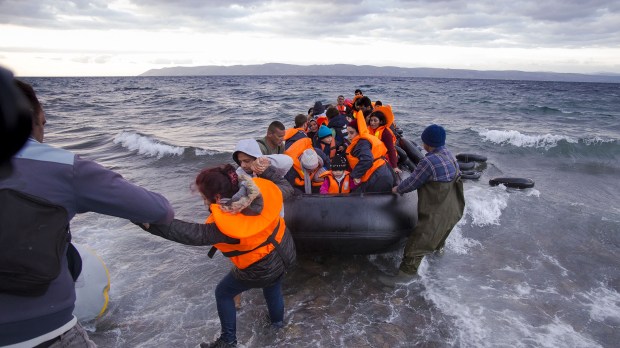Much has been written regarding Middle East Christian refugees, their status, and whether or not they and other religious minorities should be offered refuge in the United States before other groups, such as Sunni Muslim refugees, whose numbers are far greater. Here are a few points to consider:
Syria
- Christians once made up 10 percent of the population. For the most part they belonged to the middle to upper classes. While some lived in villages and farmed the land, most lived in the cities, especially Syrian Armenians. Syrian Christians are well educated, speak several languages and have friends and family members scattered throughout Europe and the Americas.
- Since 2011, those Christians living in areas of conflict fled to regime-held areas, such as Damascus and the Valley of the Christians, and have hunkered down to remain near their homes, properties and businesses. Support for the regime among Christians is one of necessity.
- Those who have fled Syria (now thought to be half of the community) went to Armenia, Jordan, Lebanon and Turkey.
- The vast majority have chosen Lebanon, as the churches there offer strong social services — with support of agencies including CNEWA — proximity to their homeland, and a shared culture and history.
- Syrian Armenians settled in the traditional Armenian neighborhoods of Beirut, such as Antelias and Bourj Hammoud, while Melkites gathered in areas with large Melkite communities in Zahle and the Bekaa Valley.
- Almost all Christian refugees chose not to register with UN agencies for assistance for a number of reasons: many had resources; others depended on extended family and the churches; all feared reprisals if registered (this is common for all Syrian minorities, not just Christians).
- None settled in camps in Lebanon (there are no formal camps) and none have settled in camps in Jordan or Turkey. This is due to pride, fear of the criminal gangs that control the camps and their preference for urban living.
- Armenia offered citizenship to Syrian Armenians. As of last year, about 15,000 settled in Yerevan. Many have returned to the Middle East, however.
Iraq
- Of the 120,000 Christians pushed out of the Nineveh Plain into Iraqi Kurdistan (Irbil and Dohuk) in 2014 by ISIS, some 80,000 remain.
- Those living in Iraqi Kurdistan are legally identified as internally displaced peoples, and all are receiving some form of assistance from the UN, as well as from church organizations, such as CNEWA.
- Many have fled to Jordan — the king offered hospitality and expedited visas, but he asked the churches to care for the primary needs of the community. Parishes did just that, temporarily housing the refugees and providing for their basic needs.
- Others have returned to Baghdad, where they continue to draw pensions and salaries if once employed by the state.
- In 2016, 955 Iraqi Christian families, including 1,187 children, left Jordan for resettlement. Many went to Australia.
Processing refugees for resettlement in the United States involves several steps. First, they have to be referenced by the United Nations, which means they have to be registered with the United Nations High Commissioner for Refugees to be defined legally as refugees. As outlined above, most Syrian Christians have not registered. More Iraqis have registered once they travel to Jordan so as to join families in the West. (Christians once formed some 10 percent of Iraq’s population; most have left since 1991, settling in Oceania and North America.)
Earlier this week, Patriarch Louis Raphael I of the Chaldean Catholic Church — Iraq’s largest — said of the U.S. executive order that any preferential treatment based on religion provides the kind of arguments used by those who propagate “propaganda and prejudice that attack native Christian communities of the Middle East as ‘foreign bodies’” or as groups that are “supported and defended by Western powers.”
“These discriminating choices,” he said, “create and feed tensions with our Muslim fellow citizens. Those who seek help do not need to be divided according to religious labels.
“And we do not want privileges. This is what the Gospel teaches, and what was pointed out by Pope Francis, who welcomed refugees in Rome who fled from the Middle East, both Christians and Muslims without distinction.”
This piece is offered to help dispel some of the erroneous information currently feeding confusion and partisanship where there should be none. Especially with portions of the electorate that self-identify as Christian or Catholic, it is vitally important to understand the realities about refugees and immigrants, beyond the unhelpful partisan narratives that are making assistance to both problematic and politicized.
There are no easy solutions regarding the Middle East and its peoples, especially for the fluid theaters impacted by war and instability. But for Christians, a good place to start is to listen to those entrusted with pastoral leadership of the Church in the land of its birth.

